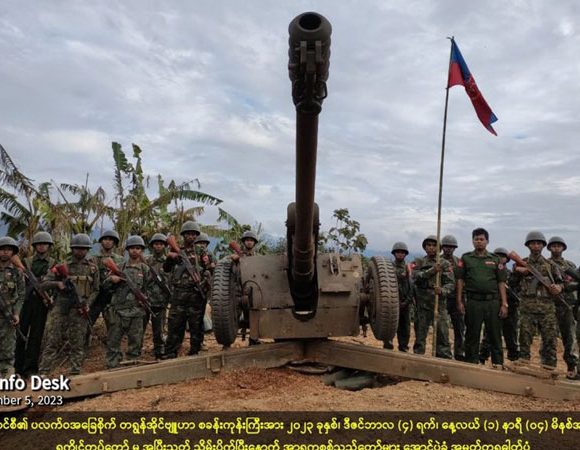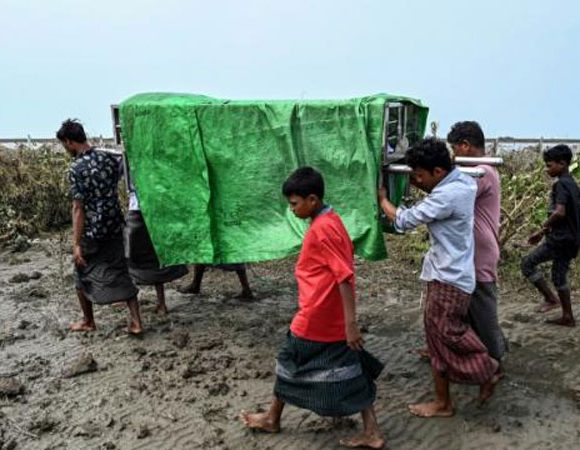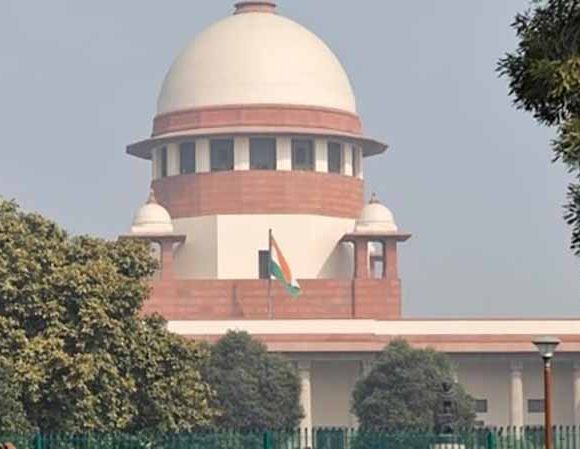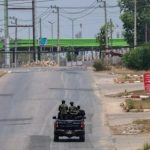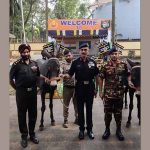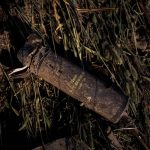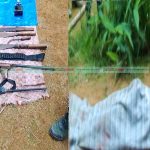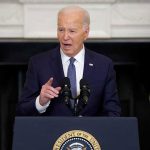Rebel Russian mercenaries barrel towards Moscow
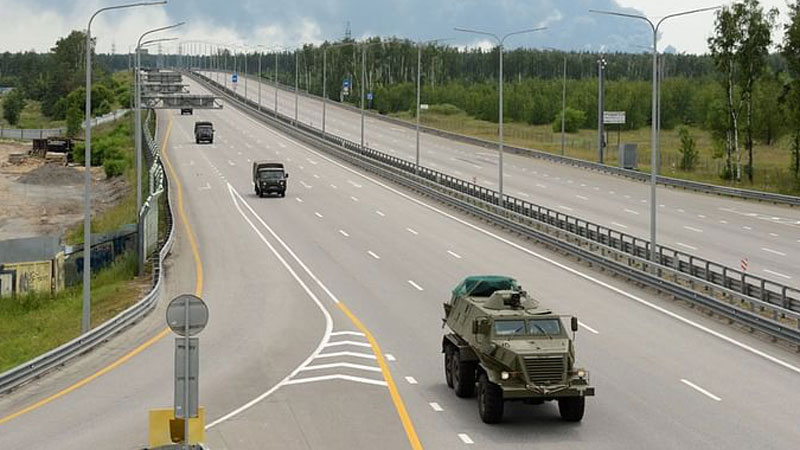
Mutinous Russian mercenary fighters headed towards Moscow on Saturday after seizing a southern city overnight, with Russia’s military firing on them from the air but seemingly incapable of slowing their lightning advance, Reuters reports.
Facing the first serious challenge to his grip on power of his 23-year rule, President Vladimir Putin vowed to crush an armed mutiny he compared to Russia’s Civil War a century ago.
The fighters of the Wagner private army run by former Putin ally Yevgeny Prigozhin were already most of the way to the capital, having captured the city of Rostov and set off on an 1,100 km (680 mile) race to Moscow.
Reuters saw troop carriers and a flatbed truck carrying a tank driving past the city of Voronezh more than half way to Moscow, where a helicopter fired on them. But there were no reports of the rebels meeting any substantial resistance on the highway.
A source close to the leadership in the Russian-held part of Ukraine’s Donetsk province said the convoy nearing Moscow had about 5,000 fighters, with a similar number in Rostov. Overall, Wagner has fewer than 25,000 men at its disposal, said the source, who has proved reliable in the past.
The source said the mercenaries, led by a senior Wagner commander, Dmitry Utkin, intended to take up positions in a densely built-up area.
Outside Moscow, armoured military vehicles set up roadblocks, while Russian media showed small groups of police manning machine gun positions on the southern outskirts. Authorities in the Lipetsk region south of the capital told residents to stay home.
The mayor of Moscow, Sergei Sobyanin, called on people to refrain as far as possible from making trips around the city, given a counter-terrorism operation had been declared, and said the situation was “difficult.”
Sobyanin said in a statement that Monday would be a non-working day – with some exceptions – in order “to minimise risks”. There was an increased security presence on the streets and Red Square was blocked off by metal barriers.
More than 100 firefighters were in action at a fuel depot ablaze in Voronezh. Video footage obtained by Reuters showed it blowing up in a fireball shortly after a helicopter flew by. Prigozhin accused Russia’s military of hitting civilian targets from the air as it tried to slow the column’s advance.
Prigozhin said his men were on a “march for justice” to remove corrupt and incompetent commanders he blames for botching the war in Ukraine.
In a televised address from the Kremlin, Putin said Russia’s very existence was under threat.
“We are fighting for the lives and security of our people, for our sovereignty and independence, for the right to remain Russia, a state with a thousand-year history,” he said.
“All those who deliberately stepped on the path of betrayal, who prepared an armed insurrection, who took the path of blackmail and terrorist methods, will suffer inevitable punishment, will answer both to the law and to our people.”
Putin later signed a law tightening rules for breaking martial law in places where it has been imposed, the RIA news agency said.
DEFIANT PRIGOZHIN
A defiant Prigozhin said he and his men had no intention of turning themselves in.
“The president makes a deep mistake when he talks about treason. We are patriots of our motherland, we fought and are fighting for it,” Prigozhin said in an audio message. “We don’t want the country to continue to live in corruption, deceit and bureaucracy.”
Prigozhin, whose private army fought the bloodiest battles in Ukraine even as he feuded for months with the top brass, said he had captured the headquarters of Russia’s Southern Military District in Rostov without firing a shot.
In Rostov, which serves as the main rear logistical hub for Russia’s entire invasion force, residents milled about calmly, filming on mobile phones as Wagner fighters in armoured vehicles and battle tanks took up positions.
One tank was wedged between stucco buildings with posters advertising the circus. Another had “Siberia” daubed in red paint across the front, an apparent statement of intent to sweep across the breadth of Russia.
“Will there be civil war?” a woman in Rostov asked the mercenaries who took over the city. “No, everything will be fine,” a fighter answered.
The surrounding region of Rostov is an important oil, gas and grains hub.
In a series of hectic messages overnight, Prigozhin demanded that Defence Minister Sergei Shoigu and the chief of the general staff Valery Gerasimov should come to see him in Rostov.
‘SIGNIFICANT CHALLENGE’
Western capitals said they were closely following the situation in nuclear-armed Russia. US President Joe Biden spoke with the leaders of France, Germany and Britain, while Secretary of State Antony Blinken spoke to counterparts from G7 nations.
“This represents the most significant challenge to the Russian state in recent times,” Britain’s defence ministry said.
“Over the coming hours, the loyalty of Russia’s security forces, and especially the Russian National Guard, will be key to how this crisis plays out.”
Putin’s grip on power may depend on whether he can muster enough loyal troops to combat the mercenaries at a time when most of Russia’s military is deployed at the front in southern and eastern Ukraine.
Turkish President Tayyip Erdogan urged Putin to act with common sense, in a phone call with the Russian president about the recent developments.
The insurrection also risks leaving Russia’s invasion force in Ukraine in disarray, just as Kyiv is launching its strongest counteroffensive since the war began in February last year.
“Russia’s weakness is obvious. Full-scale weakness,” Ukrainian President Volodymyr Zelenskiy wrote in a social media message. “And the longer Russia keeps its troops and mercenaries on our land, the more chaos, pain and problems it will have for itself later.”
PRIGOZHIN’S REVOLT
Prigozhin, a former convict and long-time ally of Putin, leads a private army that includes thousands of former prisoners recruited from Russian jails.
His men took on the fiercest fighting of the 16-month Ukraine war, including the protracted battle for the eastern city of Bakhmut.
He railed for months against the regular army’s top brass, accusing generals of incompetence and of withholding ammunition from his fighters. This month, he defied orders to sign a contract placing his troops under Defence Ministry command.
He launched the apparent mutiny on Friday after alleging that the military had killed many of his fighters in an air strike. The Defence Ministry denied it.
“There are 25,000 of us and we are going to figure out why chaos is happening in the country,” he said, promising to destroy any checkpoints or air forces that got in Wagner’s way. He later said his men had been involved in clashes with regular soldiers and had shot down a helicopter.
Anna Matveeva, senior visiting research fellow at King’s College’s Russia Institute, said Prigozhin was a popular figure whose men were well-equipped and trained, after doing the heavy-lifting in Ukraine in recent months.
“They are a force to be reckoned with”, said Matveeva, adding that Wagner’s success or failure would depend on the allies it could find within Russia’s security forces.
Army Lieutenant-General Vladimir Alekseyev issued a video appeal asking Prigozhin to reconsider.
“Only the president has the right to appoint the top leadership of the armed forces, and you are trying to encroach on his authority,” he said.

